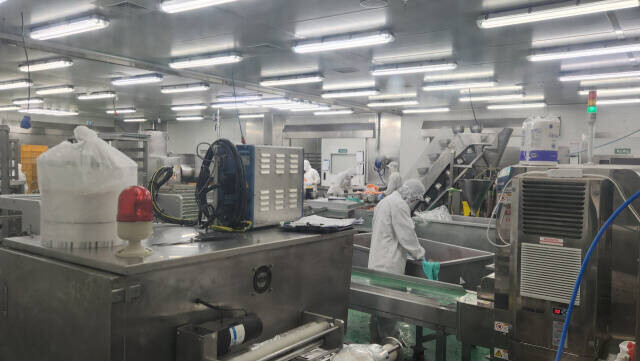
Seoul, South Korea - South Korea is considering a significant expansion of its Employment Permit System (EPS), potentially allowing non-skilled (E-9) foreign workers to fill labor shortages in sectors like parcel sorting, restaurant hall service, and the hotel industry in the Gyeongbuk province. The Ministry of Employment and Labor is expected to convene the Foreign Workforce Policy Practical Committee as early as next month to deliberate on the "Improvement and Support Measures for New Service Industries under the Employment Permit System."
This move comes as the government grapples with persistent labor shortages in various service industries and aims to alleviate the burden on local workers. If approved by the Foreign Workforce Policy Committee (FWPC), the revised regulations could take effect as early as July, potentially bringing an influx of E-9 workers to these sectors by late September, or even sooner for those already in the country seeking a change of workplace.
Currently, the E-9 visa in the courier industry is limited to simple laborers involved in loading and unloading. The proposed change would extend this to include the sorting process, a task often rotated with loading and unloading by courier workers, making it challenging for companies to utilize foreign labor under the current regulations.
Similarly, the inclusion of restaurant hall service in the E-9 eligible occupations follows persistent demands from the restaurant industry, which has faced difficulties in hiring and retaining local staff. While the government permitted the employment of E-9 workers as kitchen assistants last April, remained excluded, despite Overseas Koreans (F-4 visa holders) and international student (D-2 visa holders) being eligible for such roles. The industry argues that this has not adequately addressed the staffing shortages. The government is also considering easing the minimum business operation period for restaurants to be eligible for E-9 hiring from the current five years to three years. However, concerns about the higher risk of closure for newer establishments are being weighed against the need for labor.
The proposal to include the hotel and resort condominium industries in Gyeongbuk province under the E-9 scheme appears to be partly in preparation for the Asia-Pacific Economic Cooperation (APEC) summit scheduled to be held in Gyeongju in October 2025. Currently, only hotels in Seoul, Busan, Gangwon, and Jeju are permitted to hire E-9 workers, and even then, limited to building cleaners. There are no immediate plans to extend this to other hotel operations.
While the government views these measures as crucial for addressing labor shortages and supporting struggling small business owners, particularly in the food service sector as highlighted by Deputy Prime Minister and Minister of Economy and Finance Choi Sang-mok, labor groups and experts have voiced strong opposition.
Woo Moon-sook, policy director of the Korean Confederation of Trade Unions, a member of the Foreign Workforce Policy Practical Committee, argued that the labor shortage in the service industry stems from a lack of effort to improve working conditions and wages for local workers. She warned that "indiscriminately introducing cheap foreign labor without such policy support will further deepen the wage gap in the labor market."
Professor Chung Se-eun of Chungnam National University (economics) echoed these concerns, stating that "importing cheap labor in a country with severe polarization requires caution." She warned of a potential "vicious cycle where low-wage labor becomes entrenched, leading to decreased consumption." Professor Chung also criticized the government's tendency to prioritize employers' demands for foreign labor without adequately considering the broader implications for the domestic labor market.
The potential expansion of the E-9 visa program marks a significant policy shift that could reshape the labor landscape of several key service industries in South Korea. While proponents emphasize the urgency of addressing labor shortages to maintain economic activity, opponents raise critical questions about the potential for wage depression, increased inequality, and the long-term impact on the quality of jobs available to Korean workers. The deliberations of the Foreign Workforce Policy Committee in the coming month will be closely watched as South Korea navigates the complex challenges of labor supply and demand in its rapidly evolving economy.
[Copyright (c) Global Economic Times. All Rights Reserved.]






























